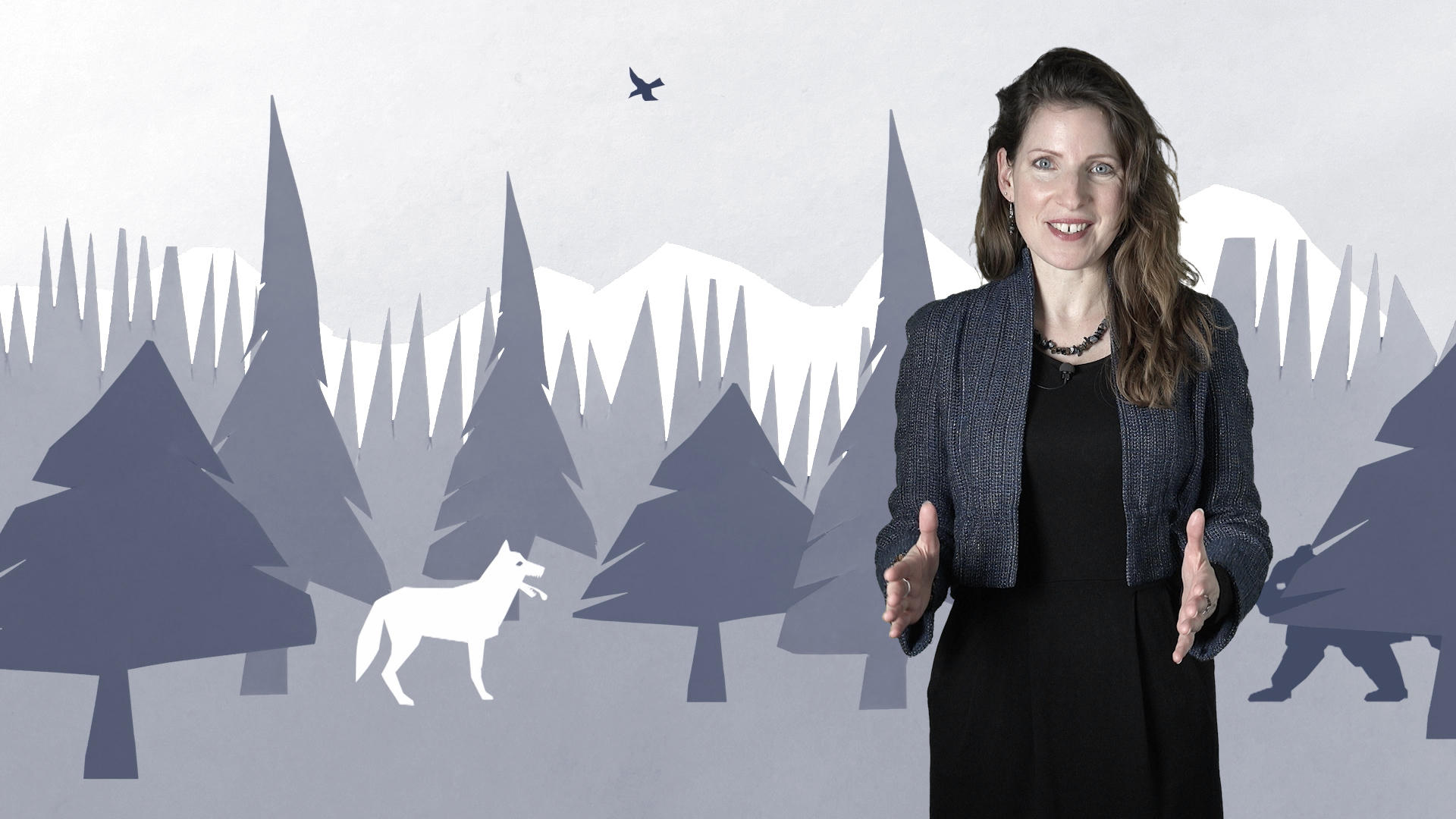
Number of wolf packs almost double in Switzerland

Experts estimate that the country hosts between seven and nine wolf packs.
Within the space of a year, the wolf population has grown in Switzerland. According to the latest estimates of the Swiss Wolf GroupExternal link released on Sunday, at least seven wolf packs live in the country compared to four in the previous year. A pack is defined as a territorial wolf population of three or more socialised animals of both sexes.
The updated figures are from the biological year that runs from the beginning of May 2019 to the end of April 2020. Assuming a minimum of seven wolf packs, it is estimated that there are now between 60 to 70 wolves in Switzerland.
The packs live in the cantons of Graubünden (Surselva, Obersaxen, Beverin), Valais (Val d’Anniviers, Val d’Entremont, Chablais) and Vaud (Col du Marchairuz). Solitary individuals are also present in the Bernese Oberland and Central Switzerland. In total, the number of packs could be as many as nine, according to the Swiss Wolf Group. The status of two groups, one in the Calanda massif in Graubünden and the other in the Ticino’s Valle Morobbia, remains unclear.

Seven new births were also confirmed, according to the Swiss Wolf Group; three in Valais and three in Graubünden, and one in the canton of Vaud.

More
Wolves: welcome or worrying?

In compliance with the JTI standards
More: SWI swissinfo.ch certified by the Journalism Trust Initiative




























You can find an overview of ongoing debates with our journalists here . Please join us!
If you want to start a conversation about a topic raised in this article or want to report factual errors, email us at english@swissinfo.ch.